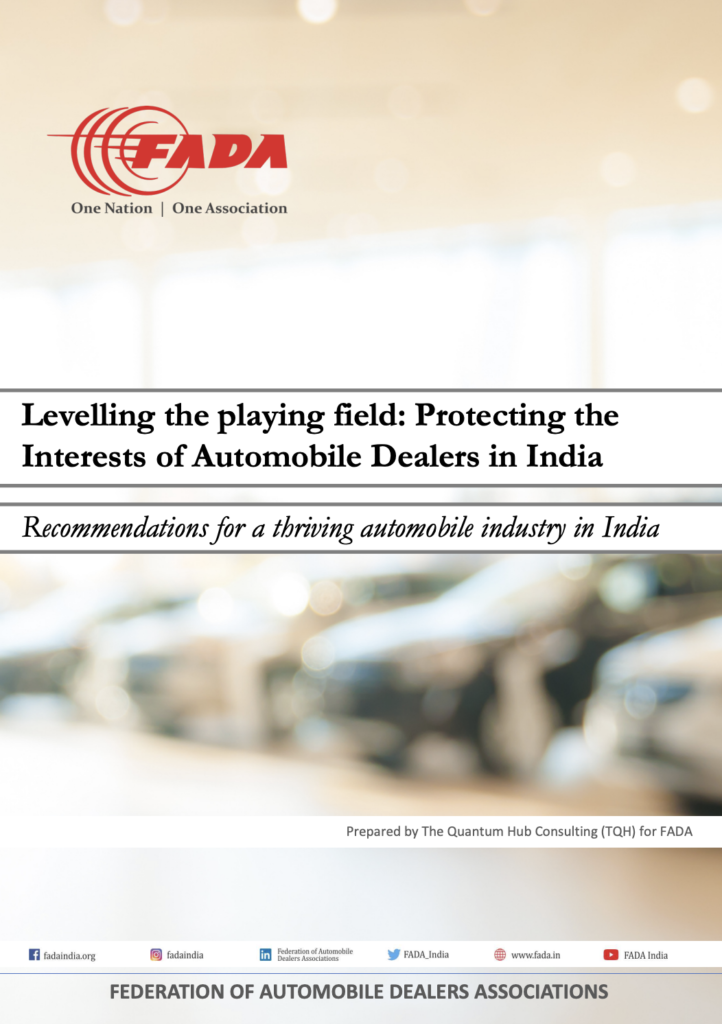Date:
20211015
Author/s:
A TQH Study
Levelling the playing field: Protecting the Interests of Automobile Dealers in India
According to a recent Parliamentary Standing Committee Report, the Indian automobile industry is a Rs. 8.2 lakh crore industry and its turnover constitutes 7.1% of overall GDP, 27% of industrial GDP and 49% of manufacturing GDP, clearly signifying its importance as one of the key sectors of the economy. This sector also provides employment, directly and indirectly to about 3.7 crore persons. It is also a large contributor to the national exchequer, contributing 1.5 lakh crore in GST which corresponds to 15% of the total GST collected in December 2020, when the above-mentioned report was submitted.
The value chain of the automobile industry in India typically consists of the automobile manufacturers (“OEM” – Original Equipment Manufacturers) and automobile dealers (“Dealers”) that form the two pillars of the industry along with allied services such as finance, insurance etc. Dealers in India are predominantly small and medium enterprises that provide employment to over 4 million people, making them a significant stakeholder in the welfare of the country. In a country where owning a family car has always been a luxury and a dream, automobile dealerships are an integral part of the business ecosystem and community.
However, the automobile industry and its progress face significant challenges in India. In an industrial landscape muddled by entries and exits of international OEMs, an overall slump in the automobile sector, and the historically imbalanced power structures between OEMs and Dealers, it is the Dealers that often pay the price.
To understand the underlying issues, The Quantum Hub worked with the Federation of Automobile Dealers Associations (FADA) to undertake a comprehensive comparative analysis of dealership Agreements in India and abroad, while studying the legal frameworks and protections available to Dealers in other countries. The findings have been incorporated into a Policy Brief that can be accessed below.
Our research suggests that the current structure of most contracts in India is not equitable, and a protective legislation may be needed to level the playing field.
